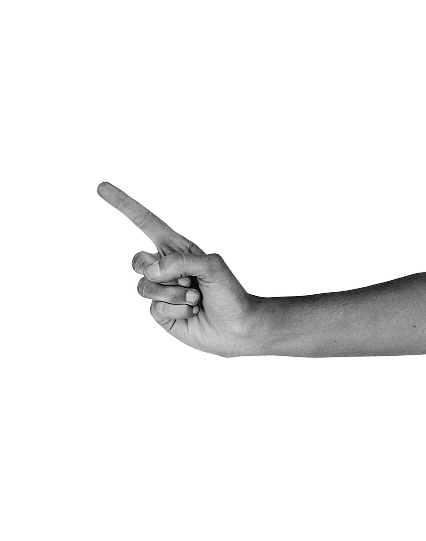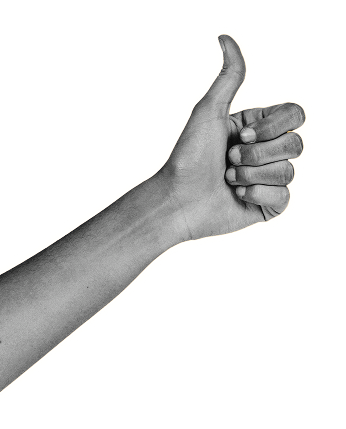
Museums and cultural institutions often present themselves as dedicated to the project of decolonisation. As I understand it, this process of decolonisation would not only involve the challenge of bringing to light (and deeply understanding) a cultural institution’s colonial past, but also using this knowledge to inform meaningful, radical, and invariably uncomfortable changes in the present – whilst always understanding that the institution is part of the world outside its walls.
It is clear that some decolonising efforts by museums are glaringly hypocritical. We might think of the British Museum’s Peru: a journey in time (November 2021 – February 2022), displayed at a museum that has an infamous multi-million pound sponsorship deal with fossil fuel giants BP. Nonetheless, many cultural institutions seem to be heading in the right direction, from exhibitions and initiatives (such as the Royal Academy’s 2024 major exhibition Entangled Pasts, 1768-now: Art, Colonialism and Change), to smaller changes like updated museum labels, audio guides, and events highlighting collections’ colonial histories.
I recently worked as a social media manager at a small art history foundation whose central mission was to bring historically overlooked and underrepresented artists and artworks to a wider audience. I began the role feeling virtuous, inspired, and ready to contribute to a progressive, socially inclusive re-telling of art history. However, I soon realised that the type of ‘decolonisation’ sought by the top brass at museums and art institutions is one that must remain palatable to the capitalist establishment: which, of course, is not decolonisation at all.
Last October, the genocide in Palestine began, and the hollowness of museum decolonisation projects was laid bare. Euro-Med Human Rights Monitor estimates 200+ cultural and ancient historical sites have been damaged, destroyed or looted by Israel’s assault on Gaza, including 4000+ sqft of mosaics, the Great Omari Mosque, the Hammam al-Sammara, Qasr al-Basha museum, and warehouses storing thousands of archaeological artefacts. Every single one of Gaza’s 12 universities has been destroyed. More than 80% of Gaza’s schools have been severely damaged or destroyed by Israeli air strikes and shelling. For a sense of the scale, one only needs to read South Africa’s case against Israel in the International Court of Justice, which includes a list of cultural and learning sites destroyed by the Israeli army (see pages 54-56).
It is impossible to see how one can be committed to decolonising cultural institutions and yet remain silent on what is unfolding in Palestine. With this in mind, I wrote to the aforementioned art history foundation, asking if they would consider publishing a post about the destruction, looting and damage of Palestinian cultural heritage sites by Israeli armed forces since October 2023. Their response: we cannot publish anything on Palestine because we are ‘apolitical’. Yet, during my time with them we had published multiple posts, reels and articles about the cultural destruction taking place in both Afghanistan and Ukraine in 2022.
It is striking that all major museums and cultural institutions (and smaller ones, which are even more dependent on donors) have only had difficulty speaking out against cultural destruction in Palestine. After Russia’s invasion of Ukraine in 2022, the museum community worldwide openly and rightly condemned the war, with a surge of director statements, open letters, exhibitions and pledges of support for Ukraine. For example, in March 2022, Arts Council England In issued a statement of solidarity with the Ukrainian Cultural Foundation and emphasised that the culture sector could “play an important role in putting pressure on the Putin regime to end the invasion of Ukraine”. The director of the British Museum at the time, Hartwig Fischer, said: “Culture is precious yet fragile: whether tangible or intangible, it fosters understanding and belonging. The scale of human displacement and destruction in Ukraine is deeply distressing, as are the threats to its rich culture. We extend our deepest sympathy to the people of Ukraine and stand ready to provide support to our colleagues in museums and at historic sites across Ukraine’.”
The international museum community has also organised itself remarkably quickly when it comes to ‘threats’ to their own collections. In response to the targeting of art works by climate activists across Europe in 2022, directors from 92 cultural institutions worldwide wrote an open letter – published by International Council of Museums – condemning such actions: “The activists responsible for this underestimate the fragility of these irreplaceable works”, and “we were deeply shocked by their risky endangerment”. At the time, I was infuriated by this response. The outcry completely ignores the fact that environmental crises disproportionately impact communities of colour – who are paying a much greater price than corporations and governments in the global north, and whilst enduring the legacies of colonialism. Any museum that claims to be committed to decolonisation must also take the climate emergency seriously.
When museum institutions have made statements on Palestine, they are diluted and neutral, often with no explicit mention of Palestine. A case in point is the statement issued in May 2024 by the International Council of Museums (ICOM), titled: Declaration on the protection of archives, libraries, museums and heritage places during armed conflicts and political instability. It contains no mention of any specific country. The following month, ICOM published a news item about its intensified “efforts toward decolonisation, reflecting a broader movement within the museum sector to address historical injustices and promote inclusivity.” The most telling word here, I would argue, is ‘historical’. If the colonial injustices in question can be contained in the past, then most museum institutions and organisations are ready to confront them – even when it involves showing their own institution in an unflattering light. The injustices were carried out by people from the past, locked in the safe of history, who have nothing to do with the museum’s present: a commitment to ‘decolonisation’ and ‘inclusivity’ is, surely, proof of that. Yet colonialism, of course, is not confined safely to the past: it is alive and kicking today. And Israel’s occupation of Palestine is possibly the starkest example.
In May, I was lucky enough to attend a lecture by political scientist, historian, and activist Professor Françoise Vergès. Entitled ‘The Impossible Decolonisation of the Western Museum’, the lecture focused on Vergès’ forthcoming book A Programme of Absolute Disorder: Decolonizing the Museum (the English translation was published on 20 July). Vergès started her lecture by saying that any discussion of decolonisation cannot happen without a discussion of Palestine, explaining that colonial occupation has always been about the destruction – or appropriation – of the art and culture of the colonised people. Throughout, Vergès emphasised that a museum can only be decolonised if this also takes place in the society around it. She argued that, ultimately, the Western museum can never be truly decolonised: instead, decolonisation has become a talking point, a way to stay relevant, a subject-matter, rather than an action.
I realised that this is what I had been feeling, but could not articulate. ‘Decolonisation’ is simply taken too lightly by museum institutions. It is political, and it is uncomfortable. It is a messy process which requires, first and foremost, the courage to challenge and disrupt the status quo and ask difficult questions. Individual staff members can try to do this, however the institution will not want to disrupt its relationship with donors and financial investors. When we see European and North American institutions returning stolen artefacts to their cultures of origin, we must also ask why the same places do not speak out against Israeli destruction of hundreds of cultural and historical sites in Palestine?
I expect that many people working in museums and art institutions are deeply disappointed by the silence of their workplaces. In March this year, over 150 employees, fellows and volunteers at The Metropolitan Museum of Art in New York delivered an open letter to the museum’s director and chief executive Max Hollein, calling for the museum to: “publish a statement calling for an end to the bombing of Gaza, take steps to better attribute and showcase our collection of Palestinian artworks, protect the voices of staff who express horror at the massive loss of life and who lament the destruction of Gaza’s cultural heritage.” No statement has yet been made by the museum, but this open letter is a step in the right direction. It shows, as one anonymous Met employee said, that “there’s a will in the staff to do the right thing, but from an institutional perspective because no public statements have been made, any mention of Palestine is shunned, stigmatised, or viewed as a very political statement.”
I recently started to get involved in the Boycott, Divestment, and Sanction (BDS) movement at University College London, a group of staff members and research students who are working to support UCL’s Palestine encampment by shining a light on the university’s complicity in the Israeli occupation, apartheid and genocide. Many staff members have paid a professional price for their involvement, but the group supports all those involved and is backed by a growing BDS pledge with nearly 800 signatories across UCL. My involvement with the group has only strengthened my faith in people coming together to stand for justice.
. . .
Bolstered by this new faith, I decided to reply to the art history foundation for whom I had worked, writing: “It saddens me that academics who I greatly respect and admire are not willing to use an available public platform to raise awareness about one of the worst atrocities of our lifetimes.” I was genuinely shocked by how these highly intelligent art historian academics (one of whom had taught me) were so unwilling to intellectually engage with my arguments. Although (at least for now) they are clearly not going to stand up for Palestine, I am still glad that I said something. I hope that when we try to let our actions be guided by decolonial values, we begin to live these values. Rather than finding loopholes or escape routes, when we can face the necessary and productive discomforts of decolonisation, we emerge as more critical, justice-oriented thinkers – and human beings.
Community.

